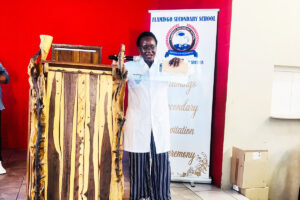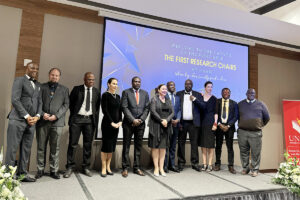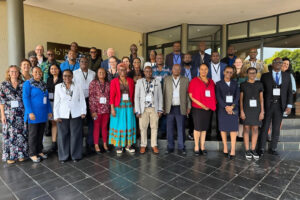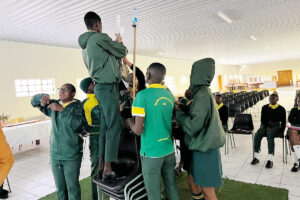It takes time to be proficient in something. More so, for an African language that most likely has close to 1.5 million speakers. Professor Petrus Angula Mbenzi, who has dedicated his life to the study and preservation of the Oshiwambo language and culture, exemplifies this skill, dedication, and passion. Nevertheless, what drives him? Why is it crucial to pursue and promote studies in indigenous languages at Professorial level?
Personal Journey
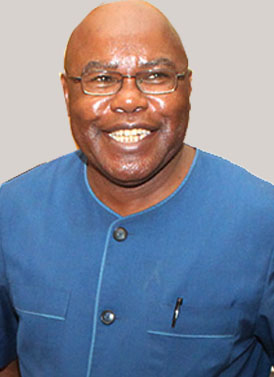
Professor Mbenzi hails from Oniipa in the Oshikoto Region, a Finnish mission station where he was exposed to Christianity early on, which limited his participation in cultural activities. At school, he learned religious songs and Bible verses. During the liberation struggle, he witnessed South African soldiers but did not experience much conflict.
“My education was in Afrikaans until Standard 6 (1981) when it switched to English at Oluno Secondary School,” says Prof. Mbenzi.
“After secondary education, I trained at Ongwediva Training College, taught by armed soldiers, and became a secondary school teacher at Oluno. Encouraged by Ms. Lovisa Munyika and Bishop Emeritus Dr. Munyika, I pursued further studies.”
In 1989, he enrolled at the Academy for Tertiary Education, studying Oshindonga under Dawie Fourie. After completing his Bachelor of Arts (BA), Fourie urged him to pursue a BA Honours in Oshindonga. He became a Junior Lecturer at UNAM in 1994, being the only one with BA and BA Honours in Oshiwambo.
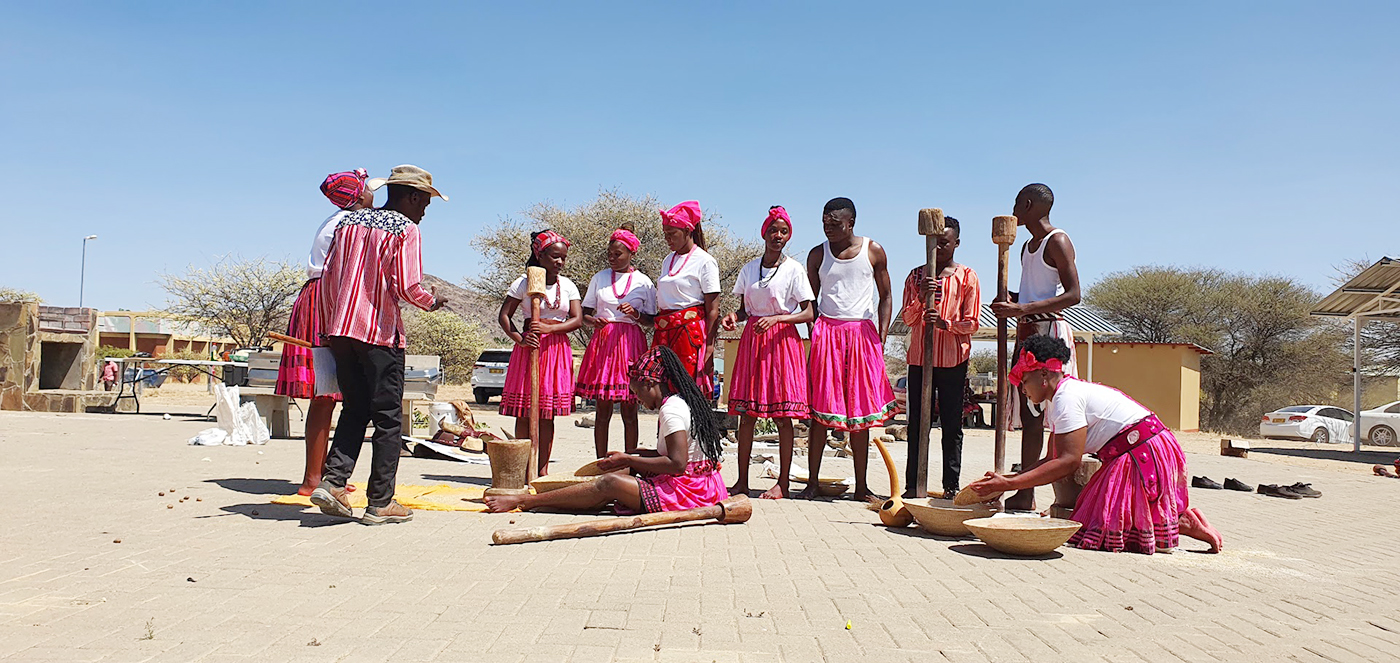
Over time, his interest in Oshiwambo grew. He completed a Postgraduate Diploma in Special Education, wrote schoolbooks for the new curriculum, and published papers. Since 1994, he has been the only full-time Oshiwambo Lecturer at UNAM.
In 2002, he began teaching Oshiwambo Culture, spending countless hours researching. He became a regular presenter on NBC Kati FM, hosting “Elaka ndi hatu popi” (The Language We Speak), later “Moshinkoti shookuku” (In the Footsteps of our Ancestors). In 1999, he pursued further studies in Oral Literature and Linguistics at the University of Kwazulu-Natal, completing his PhD in 2013 at UNAM.
Convincing students to specialise in Oshiwambo was challenging, but in 2015, Johannes Uushona and Edward Shikesho enrolled in the Master of Arts (MA) programme. Shikesho completed his PhD in Oshiwambo Lexicography in 2022. Currently, a few students are pursuing MA programmes in Oshiwambo locally and abroad.
Academic Journey
Professor Mbenzi’s academic journey is as inspiring as it is impressive. His path to becoming a professor began with his undergraduate studies at the Academy for Tertiary Education, the precursor of the University of Namibia, where he majored in Oshindonga and History. He continued his postgraduate studies, earning degrees in BA Hons, DSPE, MA in Oral Literature and Linguistics, and a PhD in Rhetoric. His areas of specialisation include Oshindonga and Special Education. He joined UNAM in 1994, progressing from Junior Lecturer to Lecturer, Senior Lecturer, and eventually Associate Professor in 2023.
A linguistic professor specialises in the scientific study of language, including its structure, meaning, and context. They conduct research, teach courses, and publish findings on phonetics, syntax, semantics, and sociolinguistics, aiming to understand and preserve languages and their cultural significance.
Importance of pursuing careers and studies in languages
Professor Mbenzi was initially reluctant to pursue a career in linguistics. It was his first Oshindonga lecturer, Dr. Dawie Fourie, who encouraged him, saying, “People may not love Oshindonga today but will love it in the future.” This prediction has come true, as interest in Oshiwambo has grown. Mbenzi was also inspired by authors like Mr. Petrus Amakali and Mr. Hans Daniel Namuhuja.
The study and preservation of native languages are crucial for several reasons. Firstly, languages are key to understanding cultural identity and heritage. For the Oshiwambo-speaking community, maintaining their language ensures the survival of their unique cultural practices and wisdom. “By teaching culture, one inculcates traditional norms and values in the youth,” Prof. Mbenzi explained. This knowledge helps address social issues by promoting peaceful coexistence and mutual respect.
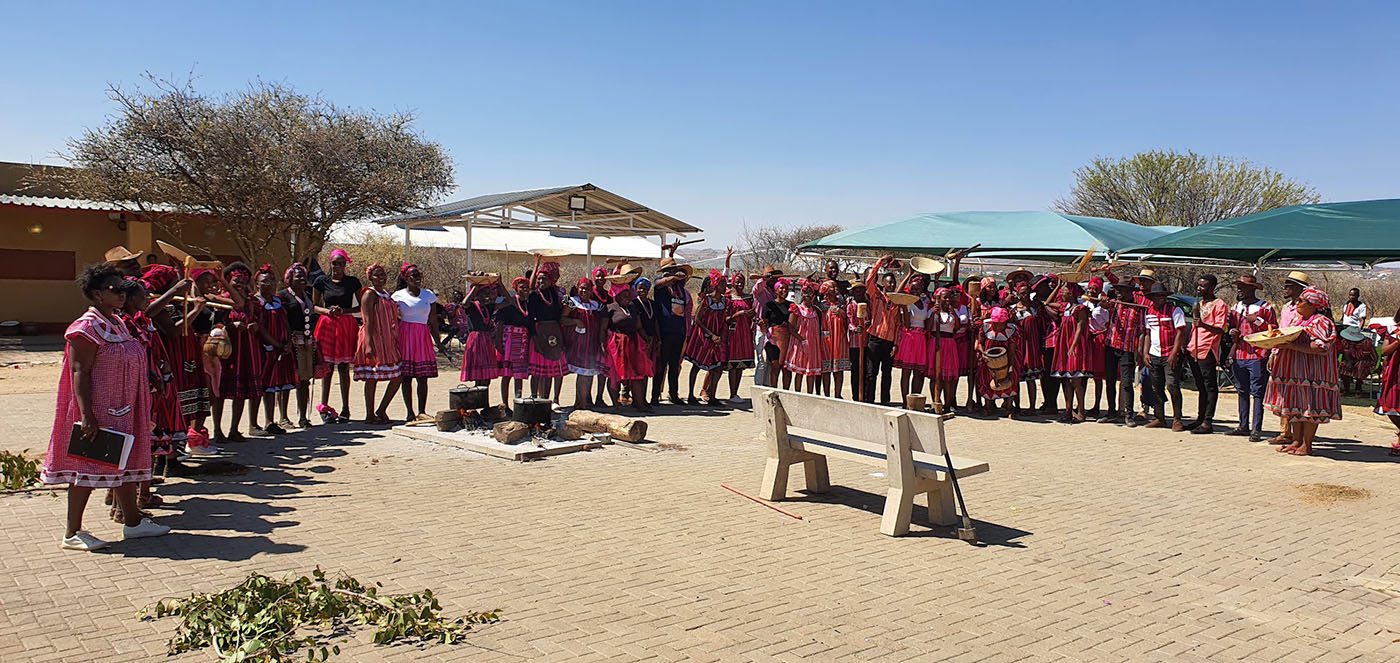
Publications
Professor Mbenzi has authored several books on Oshiwambo language and culture, shedding light on its intricacies and promoting its study. His publications are not only academic treasures but also resources for anyone interested in learning more about Oshiwambo.
Recent works include “Totemism as a World Phenomenon: The Case of Namibia,” “The Oshiwambonisation of European Names in Namibia,” and “The Anglicisation of Oshiwambo Names.” His comprehensive 556-page book on Oshiwambo culture, titled: “Omuthigululwakalo gwAawambo ohela nonena” (The Aawambo Culture Past and Present) serves as a key resource for many.
In the end, the work of Professor Petrus Angula Mbenzi underscores the importance of indigenous languages in the academic sphere and beyond. His dedication to Oshiwambo culture ensures that this rich heritage continues to thrive.
As he continues his journey, the impact of his work resonates not only within Namibia but also in the broader context of global cultural preservation.
Professor Mbenzi’s message to future linguistic aspirants is clear: “Embrace your heritage, pursue knowledge, and let the passion for your culture guide your journey.”


